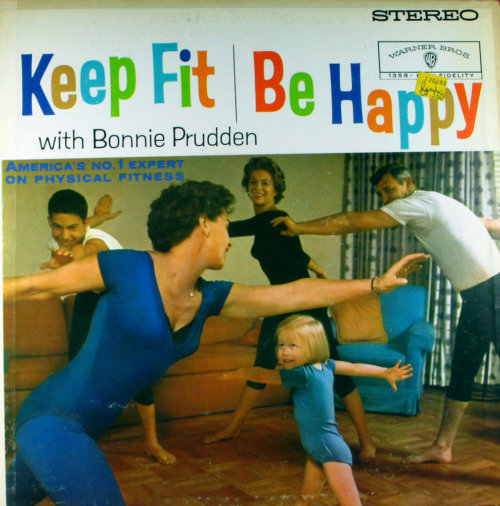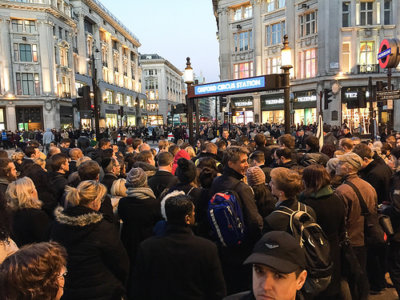Urban Stress – 10 Tips to Help You Cope
by Andrea M. Darcy
It doesn’t matter if we willingly chose to live in a big city, or relocated because of work or a relationship. Or even if we were born an urbanite and love it.
Living in a cosmopolitan area is undeniably exhausting at times, and can cause ‘urban stress’.
Is urban stress really a big deal?
Studies carried out at the Mental Health Institute in Amsterdam found that city living ups your chance of anxiety by 21%, and your chance of mood disorders by a startling 39%.
But there is no need to panic and run for the nearest small town. Urban living can be beneficial and happy… if you use positive coping methods.
How to manage urban stress
What sorts of coping methods do you need to put in place?
1. Stick to your own pace.
Often feel anxious or tense when, for example, commuting? It is likely that you are subconsciously taking on the urban stress of the rushing crowd around you.
This is where mindfulness comes in. A technique becoming popular with psychotherapists and CBT practitioners, mindfulness has its roots in Eastern meditation practises. It simply involves bringing your awareness to the present moment instead of the thoughts in your head. By using your breath and your five senses to pay attention to the now moment you can choose what to let affect you, including that rushing crowd. And you can slow down to a pace you feel good about.
2. Breathe.
The stress of an urban lifestyle leaves many of us with hunched shoulders and poor breathing habits, where we take short, shallow breaths that only go into the chest and use only a third of our lung capacity. Poor breathing is linked to conditions like panic attacks and insomnia, and is bad for the immune system.
Look at the way babies breathe for inspiration on correct breathing. Their stomachs rise and fall because they breathe right into their diaphragm. You can locate your diaphragm by putting your hand on your abdomen in the ‘gap’ of your rib cage. With proper breathing, this hand should move in and out as your breathe.
At certain points throughout the day, focus on dropping your shoulders and taking three proper, deep breaths. How much better do you suddenly feel?
3. Go where it’s green.
A study at the University of Exeter found that consistently spending time in green spaces brings a third as much wellbeing as being in a good relationship! Make the effort to go where it’s green as often as you can- instead of every day out being shopping or a museum, try exploring the different green spaces on offer in your city, and instead of having lunch at your desk, find the nearest park.
And while you are there, have a walk. Exercising in nature was found in another study to not just lower stress, but to up cognitive abilities and work performance. So when you do return to your desk, you’ll do a better job.
4. Expand your comfort zone.
When we are new to a big city, it can be very tempting to replicate the same life  we had before we arrived. We join a similar small gym, find a similar Indian takeaway, and spend our Fridays nights watching DVDs per usual. Even if we have been an urban dweller for ages we can fall into a rut of the same routine every week.
we had before we arrived. We join a similar small gym, find a similar Indian takeaway, and spend our Fridays nights watching DVDs per usual. Even if we have been an urban dweller for ages we can fall into a rut of the same routine every week.
While this can make us feel safe, it can also allow us to be negative and bored with our lives.
Joy is often waiting just outside our comfort zone, and urban living offers a lot of opportunity for experimenting. Why not set yourself a goal of trying one new thing a week, even if it’s just walking home a different route or trying a new restaurant? .
5. Make friends outside of work.
Sometimes working in the city involves long hours, and it’s tempting to just settle for a social life of drinks out with colleagues now and then. But what if your job changes or you are made redundant? Or work gets stressful and those friendships become harder?
If you don’t know where to start with meeting new people, try joining a local gym, or signing up for a workshop or event related to one of your favourite hobbies. Meetup.com is a worldwide portal that is great for finding groups to match any interest. Or consider volunteering, which also has the added benefit of improving our moods.
6. Up your sleep game.
It’s harder to sleep in cities. There is more noise and light to contend with. It can be easy to just think ‘I’ll get used to it’, or ‘I manage ok on just a few hours’. But the poorer sleep we get, the more our immune systems and emotional coping systems suffer.
Take time to make sure your sleeping arrangements are as optimal as possible – try reading our article on dealing with insomnia for some useful tips.
7. Get active.
City life can be so fast we feel physically exhausted. To the point we can totally neglect the real activity our bodies need to stay healthy.
Despite our belief we are too exhausted to exercise? Taking time for physical fitness actually helps combat that ‘urban exhaustion’, which is often really just emotional and mental exhaustion. Exercise releases endorphins that help us handle stress better.
8. Keep a budget.
One of the main stresses of urban living is the sheer cost of it. If we don’t pay attention to where our money goes, we can end up panicking all the time, or in debt (read more about the emotional costs of debt here).
It’s a very good idea to track your expenses and start a budget. If you don’t know where to start look for free government services that provide useful advice. In the UK these include the Money Advice Service.
9. Be yourself.
It can be easy to feel we have to be someone else to ‘survive’ urban life. Like believing we have to be more wary and trust nobody.
While it’s true that cities have more crime and it’s unwise to leave our doors unlocked, it’s also true that people are people wherever we go. If we are on guard and paranoid all the time, a city will without doubt be a miserable experience.
Be smart, but learn to trust your own instincts about people. And take time to notice the positives around you. The people who smile, the local community street party, the bus driver who makes jokes over the loudspeaker. You create your experience, not the other way around.
10. Don’t judge yourself for feeling lonely.
Despite the fact that cities mean we are surrounded by people, many of us are left feeling lonely and disconnected.
There is no need to judge yourself over loneliness, or to feel ashamed. Instead, acknowledge it, then do what makes you feel better. For some, that is scheduling more social events into their diary. For others, that is some self nurturing, a night in with a hot bath and some heart-searching journalling exploring your emotions.
If your loneliness is so overwhelming you feel it is getting the better of you then consider seeking counselling or therapy. It could be that coping with the stress of city has triggered unresolved issues from the past that a therapist can help you safely explore and resolve.
 Andrea M. Darcy is a mental health and wellbeing expert and personal development teacher with training in person-centred counselling and coaching. She is also a popular psychology writer. After living in Toronto, Paris, and London, she knows a thing or two about urban stress! Follow her on Instagram for useful life tips @am_darcy
Andrea M. Darcy is a mental health and wellbeing expert and personal development teacher with training in person-centred counselling and coaching. She is also a popular psychology writer. After living in Toronto, Paris, and London, she knows a thing or two about urban stress! Follow her on Instagram for useful life tips @am_darcy





